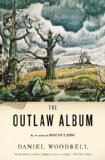Book Club Discussion Questions
In a book club? Subscribe to our Book Club Newsletter!
For supplemental discussion material see our Beyond the Book article, The Ozarks and our BookBrowse Review of The Outlaw Album.
Please be aware that this discussion guide will contain spoilers!
- Many of the stories in The Outlaw Album are concerned with justice. In "The Echo of Neighborly Bones," "Uncle," and "Returning the River," wronged characters carry out their own revenge. Do you think the punishments fit the crimes?
- Much of Woodrell's fiction is dependent on its rural setting - the isolation and rough terrain a crucible in which an insular community is forged. Do you find that the portrayal of rural America is accurate? Do you think that Woodrell's characters would translate to another setting?
- Young women play a number of roles in The Outlaw Album - in "Twin Forks," it is the memory of a young woman that brings Morrow back to the Ozarks; in "Uncle," a teenage girl exacts her revenge on her former tormentor; in "Florianne," a father is driven to paranoia by the disappearance of his daughter; and in "One United," a girl's dream provides a striking foil for her menacing surroundings. How do these characters differ from one another? What do these stories say about the difficulties of being inherently vulnerable in a ruthless world?
- Criminal violence is not uncommon in Woodrell's fiction, but the violence of war and its effects are also present in the stories of The Outlaw Album. "Black Step" and "Night Stand" both concern characters whose experiences in the Iraq War have undoubtedly shaped their personalities and actions. What effect does their time as soldiers have on them? And how does that compare with the effects of war on veterans you have known?
- "Two Things" gives two very different perspectives on the same character - the mysterious Cecil McCoy, who may be a reformed artist after his time in prison or may be just as dangerous and manipulative as he has ever been. Who do you think is right about Cecil, the young prison worker or Mr. McCoy? Why?
- In "Dream Spot," a domestic squabble is shattered by a chance encounter. What does the hitchhiker represent for Dalrymple and Janet? Why does her appearance push their argument to its catastrophic end?
- "Woe to Live On" gives a different perspective on the Civil War. Rather than the clear-cut North-versus-South conflict in the eastern part of the country, the war was much more muddled in the Midwestern states. How does the ambiguity between sides play into the events of the story?
- Family plays an important role in The Outlaw Album, as it does in all of Woodrell's work. In the Ozarks, it seems that your family is not just who you are related to, but who you are. Each clan has its own allegiances and tendencies, and a rich history knotted back into the past, as we see in stories like "The Horse in Our History" and "Black Step." How does Woodrell use these family ties to shape his characters and his setting? Do you think of blood ties as an important factor in your life?
- The narrator of "One United" is halfway caught in dreams, leaving the reader to puzzle out exactly what is happening in the real events of the story. What do you think the narrator and Sleepy's relationship is? Why does he want her to come to the Wallaces' with him? What is his business there?
- Like many authors - particularly southern authors - Woodrell is closely associated with a single region. How do his Ozarks compare to Faulkner's Mississippi, McMurtry's Texas, and McCarthy's Southwest?
Unless otherwise stated, this discussion guide is reprinted with the permission of Back Bay Books.
Any page references refer to a USA edition of the book, usually the trade paperback version, and may vary in other editions.
